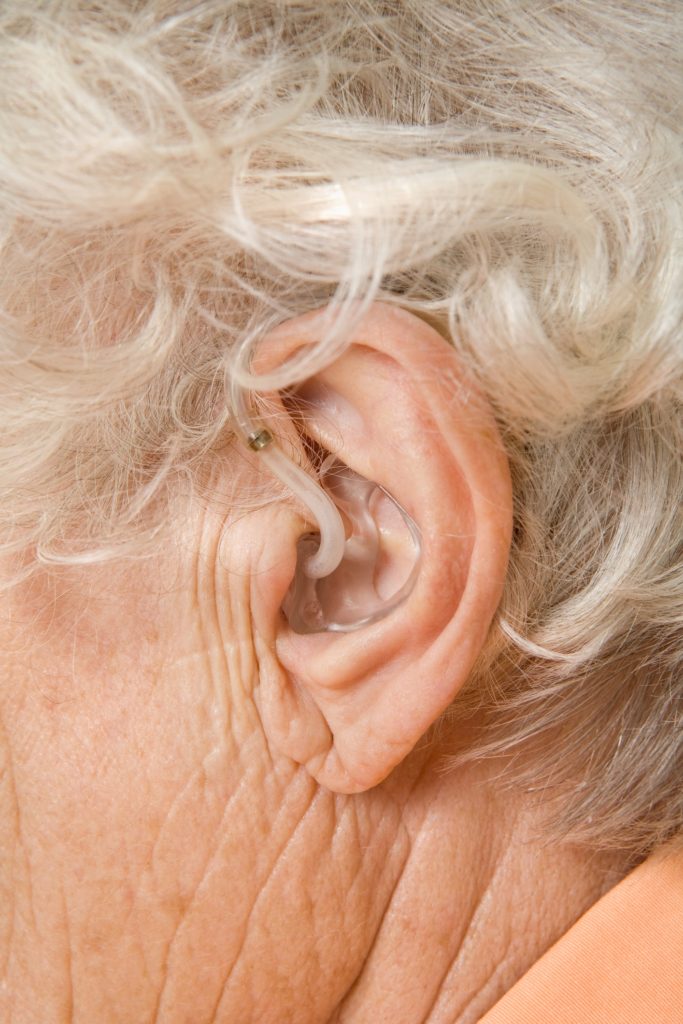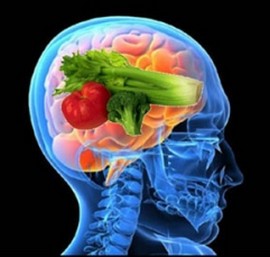This holiday season will likely be very different for many of us. Concerns over the COVID-19 pandemic continue to make it difficult and, in some cases, unsafe to gather with friends and family to celebrate the season. As we observe physical distancing recommendations, family caregivers find themselves struggling with being “present” with loved ones without actually being with them.
This season, it is important to remember being present does not always mean being physically together. Consider staring into someone’s eyes via videochat, actively listening to someone for a more engaging conversation or having a favorite pie or food treat delivered to a loved one that you can share at the same time. These gifts are just a few ways to stay connected with family throughout the season.
What is meant by “being present?”
Being present is a form of mindfulness. To be mindful is to be focused in a peaceful way on your present environment. It includes calmly but attentively listening and focusing your attention in one direction. While multitasking is often applauded as a sign of productivity, it can make mindfulness challenging. Through being present we can prioritize connecting – with others and yourself – in a meaningful way.
According to the Greater Good Science Center at UC Berkeley, mindfulness studies have shown that those who practice being present on a daily basis are more compassionate, empathetic, and resilient in dealing with life’s curveballs.1 Some studies show that mindfulness practices also help you sleep better, eat better, and can have long-term health benefits such as lowering blood pressure and reducing chronic inflammation and pain.2,3,4
How do I practice mindfulness?
There are several techniques to improve mindfulness. Examples include breathing techniques like those used in yoga and progressive muscle relaxation, which can relieve tension in individual parts of the body. Typically, mindfulness means using all or most of your senses – sight, smell, sound, taste, touch. Regardless of the method, mindfulness requires patience and willingness to unplug from distraction, finding quiet, focused time in the middle of a busy day. This Monday, open yourself to being more present – the ultimate gift for both you and those you care for.
Three Mindfulness Practices:
1. Listen to loved ones

Truly listen to your loved one by looking deeply into their eyes– see how they reinforce the emotions of their words. Staring into someone’s pupils’ releases oxytocin – the “feel good” hormone which brings comfort and connectedness. Also, listen to the melody of their voice, the highs and lows, the fear, the joy. Concentrate not only on their words but also the sounds the words make.
Not only will this make you feel closer to your loved one, but you can also pick up on clues into their emotional and physical health. Are they chronically depressed? This could be a result of being isolated from you and others or it could be an early sign of Alzheimer’s disease.5 Do they sound stressed? This could indicate they are concerned over health issues they are avoiding. If someone’s speech changes and becomes soft and low, it can be an early sign of Parkinson’s disease.6 Don’t forget, our loved ones are also picking up on our emotions– listen to your own voice. Are you positive? Happy? Loving? Or are your words and tone negative? This can affect those around us in more ways than we know.
2. Eat more mindfully

The demands of caregiving can limit our ability to prepare healthy, nutritious meals. Caregivers may find themselves eating without realizing what or how much or little food they are consuming. This is especially true during the holidays when we are particularly pressed for time and decadent treats seem to be everywhere.
Mindful eating pulls us back into the purpose of meals – to fuel our bodies for the energy and stamina needed to perform daily activities. Mindful eating includes eating slowly. Savor the taste and feel the texture of each bite. Feel the juiciness and prickliness of a pear (after all it is “partridge in a pear tree” season). Savor one bite of chocolate instead of 10. By eating slowly and experiencing the food, you will find yourself eating less if you listen to your body’s messages that you are full.
For those who are skipping meals, think of your body like a tank of gas. Your car will not continue to work if you don’t fuel your tank. Be mindful of hunger pains and listen to your body. Carry an apple or protein bar in your purse or car if you find you are missing occasional meals.
3. Tame the “monkey mind”

Do you feel distracted, unsettled, out of sorts, restless, and even confused? Then you have what the Buddhists call an active “monkey mind.” Caregivers are juggling so many responsibilities and often are their own worst critics. We over-analyze our performance as a caregiver rather than focusing on the precious and rewarding gift of care we are providing. When our inner caregiving critic is also faced with the uncertainty of the coronavirus pandemic, we feel a loss of control that can lead to negative emotions of anxiety and depression.
Mindfulness helps tame the monkey mind. Take everyday tasks, such as dishwashing, doing the laundry, cleaning the house. If we reframe these activities as gifts to ourselves (and others) rather than chores, we improve our overall positivity to deal with other life challenges.
For instance, feel the warm soapy water as you wash the dishes, savor the smell of the dish soap and the comfort of warm water. Feel the warm softness of clothes coming out of the dryer and perhaps a scent of lavender or fabric softener that gives us a sense of coziness. Feel the reward of having a clean home, soft bedsheets and towels instead of dust and dirt which can bring down your mood. Don’t worry about doing it all at once – tackle just one mindfulness clean-up at a time and keep that monkey in its cage.
Aromas can also trigger memories. Some of these cleaning chores, and the products you use, may remind of you of your childhood connecting you to your loved one even if far apart. Share that memory moment with them during your next conversation.
The holidays don’t need to be depressing or disconnected this year. Find time to practice mindfulness and you’ll reconnect with happiness. Use Monday as your reminder to be present – it is the best gift you will receive this season. Find all of our Caregiver Monday self-care practices and ideas here.
References
1 Shapiro, S., (February 27, 2013). Does mindfulness make you more compassionate? Greater Good Magazine, UC Berkeley. Retrieved from: https://greatergood.berkeley.edu/article/item/does_mindfulness_make_you_compassionate
2 Hülsheger, U. R., Feinholdt, A., & Nübold, A. (2015). A low‐dose mindfulness intervention and recovery from work: Effects on psychological detachment, sleep quality, and sleep duration. Journal of Occupational and Organizational Psychology, 88(3), 464-489.
3 Hughes, J. W., Fresco, D. M., Myerscough, R., van Dulmen, M. H., Carlson, L. E., & Josephson, R. (2013). Randomized controlled trial of mindfulness-based stress reduction for prehypertension. Psychosomatic medicine, 75(8), 721–728. https://doi.org/10.1097/PSY.0b013e3182a3e4e5
4 Rosenkranz, M. A., Davidson, R. J., Maccoon, D. G., Sheridan, J. F., Kalin, N. H., & Lutz, A. (2013). A comparison of mindfulness-based stress reduction and an active control in modulation of neurogenic inflammation. Brain, behavior, and immunity, 27(1), 174–184. https://doi.org/10.1016/j.bbi.2012.10.013
5 Green, R. C., Cupples, L. A., Kurz, A., Auerbach, S., Go, R., Sadovnick, D., … & Griffith, P. A. (2003). Depression as a risk factor for Alzheimer disease: the MIRAGE Study. Archives of neurology, 60(5), 753-759.
6 Moustafa, A. A., Chakravarthy, S., Phillips, J. R., Gupta, A., Keri, S., Polner, B., … & Jahanshahi, M. (2016). Motor symptoms in Parkinson’s disease: A unified framework. Neuroscience & Biobehavioral Reviews, 68, 727-740.
©2020 Sherri Snelling

0 Comments